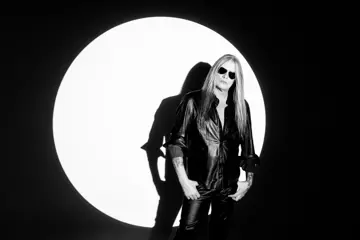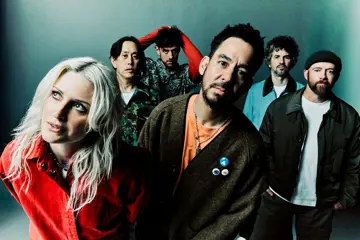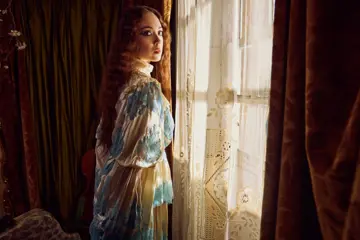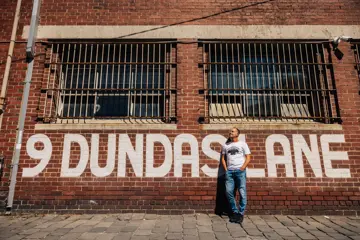After more than 16 years in development, the opening of the official Mandela biopic couldn't have come at a more symbolic time – the night that Mandela: Long Walk To Freedom premiered in London also turned out to be the last of the great man's life. News of his passing reached the audience – which included Prince William and Mandela's own two daughters – just before the end of the film, making it a more poignant, and more timely, celebration of his life than anyone could have planned.
Just the day before however, director Justin Chadwick had been describing how the movie almost didn't happen at all. When Chadwick was first approached with the idea, which had been in development for well over a decade at the time, the Manchester-born filmmaker was reluctant. “I said no at first,” he explains, “because I had a perception of who I thought Mandela was, what he represents. And I knew that his life represents a hundred years of struggle of apartheid.” The director of The Other Boleyn Girl may have been daunted by the prospect of taking on a subject so laden with history, but when he was offered the chance to meet some of the Mandela family himself, he began to see how the film could tell a more personal side of the story. “I got to spend time with Winnie, and her two daughters, and people that had been [on Robben Island], and all of a sudden I started to think that we could do it.”
The result is a film which covers a huge chunk of apartheid history, but which has at its centre the relationship between Mandela and his second wife, Winnie Madikizela-Mandela. Chadwick says, “[I wanted] the film to show them as men and women: to show [Mandela] as a lover or a father or a husband or a grandfather.” His mission was to make “a film that would be able to talk about Mandela's flaws, and him as a whole man, rather than just a one-dimensional character from the history books”.
Chadwick did extensive research, going into archives and combing through footage, but perhaps more importantly, meeting people who were there. “I knew Mandela was a brilliant young lawyer, one of the first black lawyers in Johannesburg, but I didn't know he loved cars and tailoring of fine clothes and women, and he was a boxer... There were certain things that I didn't know, but I had first-hand accounts from people who had been out with him in those days and knew his hopes and ambitions.”
Don't miss a beat with our FREE daily newsletter
Nelson Mandela and Winnie are both played by British actors. Chadwick explains that he cast Idris Elba – aka The Wire's Stringer Bell – because he thought he captured Mandela's presence, which he'd heard described as “just electric”. Naomie Harris, most recently Miss Moneypenny in Skyfall, plays Winnie, who is a divisive figure in South African politics. Describing her as “incredibly complex”, Harris admits she had no idea what she was taking on when she was offered the role of Mandela's ex-wife. “I was like...” Harris laughs and puts on a super chirpy voice, “'great! How amazing! Because Winnie was Nelson Mandela's wife, and how great that there's going to be a film that is like a celebration of Nelson Mandela!' I had no idea that Winnie was such a controversial figure.”
One of the most difficult things about the part for Harris was showing the transition that Winnie went through as she was persecuted by the apartheid police after Mandela went into prison. Filming a scene where Winnie's children were taken from her and she was forced into solitary confinement for 17 months was particularly traumatic: “I was dragged screaming away from my [fictional] children in the middle of the night. Urgh, that was ...” Harris trails off.
Portraying real-life political figures, whether they are alive or dead, brings with it a heavy responsibility, one that Harris recognises well. “You become asked to be a spokesperson for that person. And nobody can do that.” Committed to creating an honest portrayal of the character, warts and all, Harris was honoured when Winnie endorsed her performance. “She called both myself and Idris honourary South Africans. And she said that's the first time she has had her life portrayed ... truthfully.”
The film depicts Winnie's experiences radicalising her and eventually turning her down a more violent path. By contrast, it shows Mandela's long imprisonment as the time when he developed his philosophy of reconciliation. Chadwick explains: “[Mandela] went into prison and he learnt how his enemy worked ... He understood them, and he understood where they were coming from... [Mandela knew that] understanding leads to forgiveness. It takes a truly great man to understand that.”















